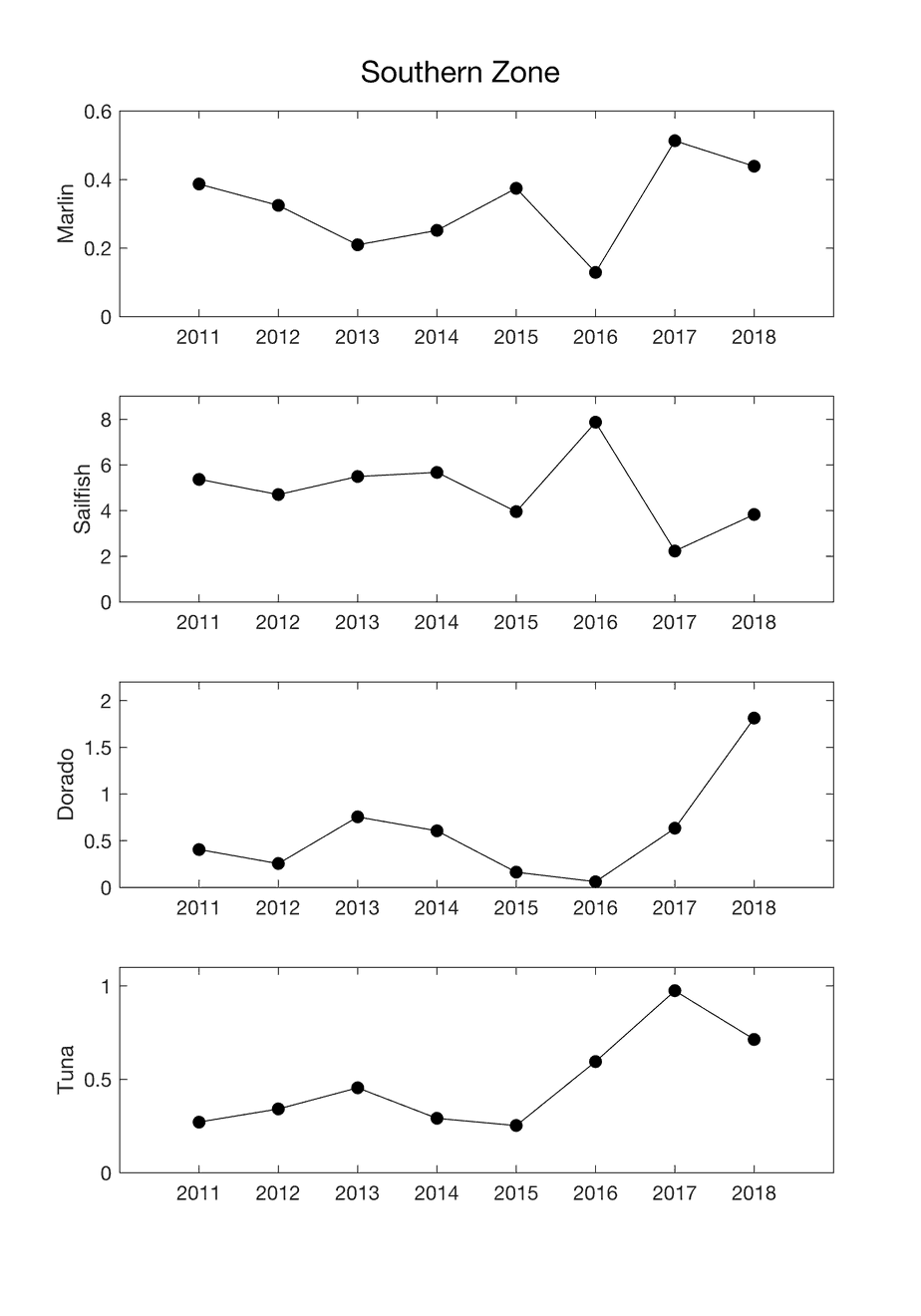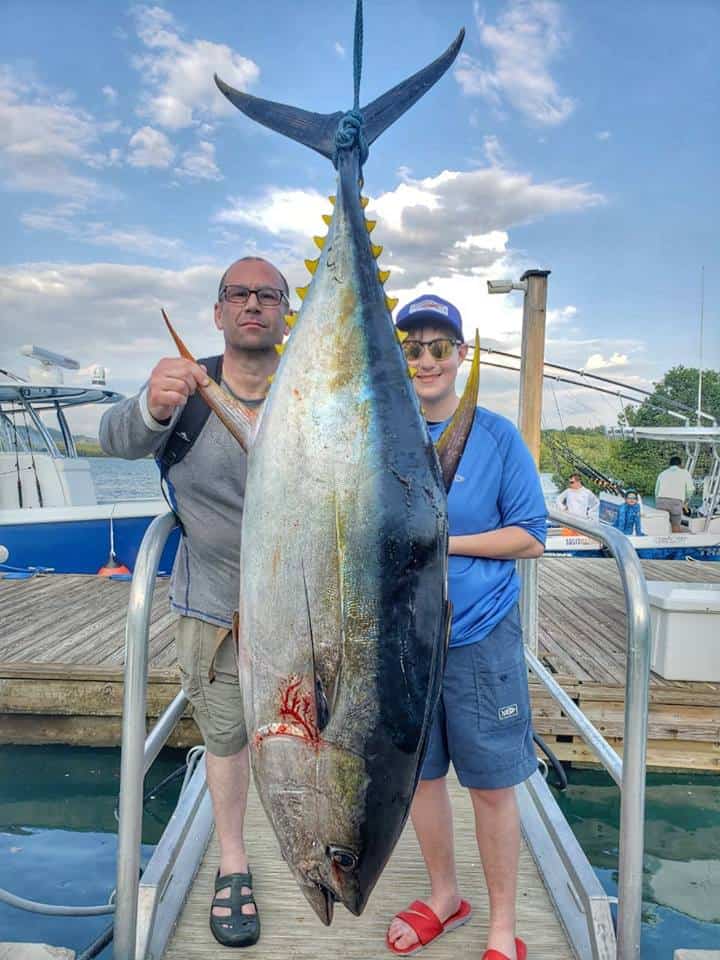Statistics are beginning to show what people in Costa Rica and on the water already knew: Fish stocks are improving in areas where tuna purse seine boats are prohibited.
Purse seiner boats are large foreign vessels that fish Costa Rica waters with nets for yellowfin tuna. Often, their bycatch (incidental capture) is marlin, sailfish, wahoo, dorado, sharks, turtles and marine mammals.
Costa Rica Tuna Fishing Decree
In 2014 the Federacion Costarricense de Pesca (FECOP) drafted a Tuna Decree — later passed by President Luis Guillermo Solís — that pushed tuna seiners out 45 miles from shore and protected other important areas for a total of 200,000 square kilometers of territorial waters.
A 2018 FECOP study analyzed bycatch data from previous observer onboard records of the protected areas and discovered 25 tons of what would have been marlin bycatch were saved.
Dr. Marina Marrari, a specialist in marine biology and satellite data who spent part of her career working with NASA analyzing marine conditions around the globe, has recently joined the FECOP team and is beginning an ambitious project in analyzing previous catch data from sport-fishing fleets.
She has already received thousands of daily fish reports from Crocodile Bay, Marina Pez Vela, Los Sueños, Club Amateur de Pesca and several private charters. Some of the information goes back 20 years or more, but she welcomes as much as she can get.
In science, the more data, the more accurate the results. Specializing in satellite data, she will also look at historic ocean conditions against catch records with a focus on historic El Niño and La Niña periods.
The study is just beginning, with only data from the Southern Zone complete. Some very interesting things are starting to appear. For example, fishing for pelagic species is much better without purse seiners in the area.
It takes a little time to recover, but with management, fish stocks can recover. Also, preliminary results show El Niño periods affect some species differently. When sailfish numbers are down after an El Niño, marlin numbers are up.

There will be updates in The Tico Times or on FECOP’s website as Dr. Marina Marrari gets deeper into the project. Anyone wishing to contribute to the program by supplying historic catch data is greatly appreciated. You can do so by contacting Dr. Marina Marrari at: MMarrari@fecop.org.
Tuna Boats Pushed out to 60 Miles in Costa Rica
Costa Rican Fisheries Institute Director Moises Mugg, along with President Carlos Alvarado, recently announced a new decree ending of the system of granting free licenses to foreign tuna purse seine boats.
The old system allowed seiners to extract nearly 9,000 tons of tuna last year while collecting a fee of less than 2 cents per kilo. Last year ,all the foreign boats legally given licenses were flagged in Nicaragua and Venezuela. There are no Costa Rican-flagged purse seiners.
Part of the new decree moved purse seiners 60 miles from the coastline. FECOP helped draft the original decree in 2014 that moved purse seiners out to 45 miles and protected more than 200,000 square kilometers from purse seine activity.
The Costa Rica sport fishing sector has seen a big recovery in that 45 miles, and now 60 will surely help. The commercial fleet claims it is not enough and does not help the national fleet that much.
Also included is addressing illegal and unreported fishing by the purse seine fleet. Full details will be available when the new decree is officially published.
Todd Staley has run fishing sport operations on both coasts of Costa Rica for over 25 years. He recently decided to take some time off to devote full-time to marine conservation and is the communications director at FECOP. Contact him at wetline@hotmail.com.






